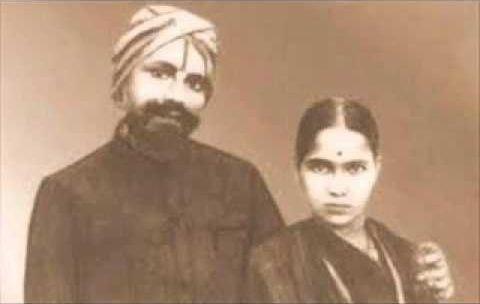Subramania Bharati
Pride of Tamil Poetry

About Mahakavi Bharati
- Bharathi was born on 11 December 1882 in the village of Ettayapuram, to Chinnaswami Subramania Iyer and Lakshmi Ammal.
- Bharathi's mother died in 1887 and two years later, his father also died. At the age of 11, in 1893 his prowess as a poet was recognised and he was accorded the title of 'bharathi'. He was a student at Nellai Hindu School and in 1897 he married Sellamal. Thererafter, from 1898 to 1902, he lived in Kasi.
- Bharathi worked as a school teacher and as a journal editor at various times in his life. As a Tamil poet he ranked with Ilanko, Thiruvalluvar and Kamban.
- His writings gave new life to the Tamil language - and to Tamil national consciousness.
- He involved himself actively in the Indian freedom struggle.
- Bharathi often referred to Tamil as his 'mother'. At the sametime, he was fluent in many languages including Bengali, Hindi, Sanskrit, Kuuch, and English and frequently translated works from other languages into Tamil
- His
யாமறிந்த மொழிகளிலே தமிழ்மொழி போல்
இனிதாவது எங்கும் காணோம் - He wrote in 'Vande Matharam' :
ஜாதி மதங்களைப் பாரோம் -
உயர் ஜன்மம்இத் தேசத்தில் எய்தின ராயின்
வேதிய ராயினும் ஒன்றே -
அன்றி வேறு குலத்தின ராயினும் ஒன்றே
We shall not look at caste or religion, All human beings in this land - whether they be those who preach the vedas or who belong to other castes - are one. - Bharathi served as Assistant Editor of the Swadeshamitran in 1904.He participated in the
1906 All
India Congress meeting in Calcutta (chaired by Dadabhai Naoroji) where the demand for 'Swaraj'
was
raised for the first time. Bharathi supported the demand wholeheartedly and found himself in the
militant wing of the Indian National Congress together with Tilak and Aurobindo. Aurobindo
writing
on the historic 1906 Congress had this to say:
"We were prepared to give the old weakness of the congress plenty of time to die out if we could get realities recognised. Only in one particular have we been disappointed and that is the President's address. But even here the closing address with which Mr.Naoroji dissolved the Congress, has made amends for the deficiencies of his opening speech.
He once more declared Self-Government, Swaraj, as in an inspired moment he termed it, to be our one ideal and called upon the young men to achieve it. The work of the older men had been done in preparing a generation which were determined to have this great ideal and nothing else; the work of making the ideal a reality lies lies with us. We accept Mr. Naoroji's call and to carry out his last injunctions will devote our lives and, if necessary, sacrifice them." (Bande Mataram, 31 December 1906) - Bharathy met with Mahatma Gandhi in 1919 and in 1920, Bharathy resumed editorship of the Swadeshamitran in Madras. That was one year before his death in 1921. Today, more than 80 years later, Subaramanya Bharathy, despite his frailties, stands as an undying symbol of Indian freedom and a vibrant Tamil nationalism.
- Bharathi died on 11 September 1921. In a relatively short life span of 39 years, Bharathi left an indelible mark as the poet of Tamil nationalism and Indian freedom.
(among all the languages we know, we do not see anywhere, any as sweet as Tamil) was his moving tribute to his mother tongue. That many a Tamil web site carries the words of that song on its home page in cyber space today is a reflection of the hold that those words continue to have on Tamil minds and Tamil hearts.
For more information checkout
Subramania
Bharati.